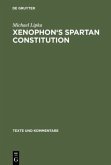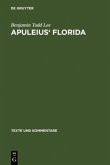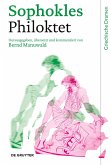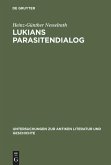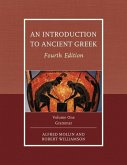This study of Sophocles' Oedipus at Colonus demonstrates the applicability of narrative models to drama. It presents a major contribution not only to Sophoclean criticism but to dramatic criticism as a whole. For the first time, the methods of contemporary narrative theory are thoroughly applied to the text of a single major play. Sophocles' Oedipus at Colonus is presented as a uniquely rich text, which deftly uses the figure and history of the blind Oedipus to explore and thematize some of the basic narratological concerns of Greek tragedy: the relation between the narrow here-and-now of visible stage action and the many off-stage worlds that have to be mediated into it through narrative, including the past, the future, other dramatizations of the myth, and the world of the fifth-century audience.
Die vorliegende Untersuchung des Ödipus auf Kolonus zeigt, dass narrative Modelle auch auf dramatische Werke sinnvoll anwendbar sind, und leistet damit nicht nur einen wichtigen Beitrag zur Sophokles-Forschung, sondern auch zur Dramentheorie. Erstmalig wird ein dramatischer Text zum Gegenstand einer erzähltheoretischen Studie. Sophokles' Ödipus auf Kolonus ist für eine solche Untersuchung in besonderer Weise geeignet. Indem der Dramentext die Gestalt und Geschichte des blinden Ödipus in den Mittelpunkt stellt (eine Figur, der auch das gegenwärtige Geschehen stets erzählt werden muss), lässt er das grundlegend narrative Element der griechischen Tragödie in besonders eindrücklicher Weise thematisch werden: das Verhältnis zwischen dem Hier und Jetzt des sichtbaren Bühnengeschehens und den vielen Welten abseits der Bühne, die durch die Erzählung in sie integriert werden müssen, z.B. die Vergangenheit, die Zukunft, andere Dramatisierungen des Mythos und die Lebenswirklichkeit des Theaterpublikums im fünften vorchristlichen Jahrhundert.
Die vorliegende Untersuchung des Ödipus auf Kolonus zeigt, dass narrative Modelle auch auf dramatische Werke sinnvoll anwendbar sind, und leistet damit nicht nur einen wichtigen Beitrag zur Sophokles-Forschung, sondern auch zur Dramentheorie. Erstmalig wird ein dramatischer Text zum Gegenstand einer erzähltheoretischen Studie. Sophokles' Ödipus auf Kolonus ist für eine solche Untersuchung in besonderer Weise geeignet. Indem der Dramentext die Gestalt und Geschichte des blinden Ödipus in den Mittelpunkt stellt (eine Figur, der auch das gegenwärtige Geschehen stets erzählt werden muss), lässt er das grundlegend narrative Element der griechischen Tragödie in besonders eindrücklicher Weise thematisch werden: das Verhältnis zwischen dem Hier und Jetzt des sichtbaren Bühnengeschehens und den vielen Welten abseits der Bühne, die durch die Erzählung in sie integriert werden müssen, z.B. die Vergangenheit, die Zukunft, andere Dramatisierungen des Mythos und die Lebenswirklichkeit des Theaterpublikums im fünften vorchristlichen Jahrhundert.


